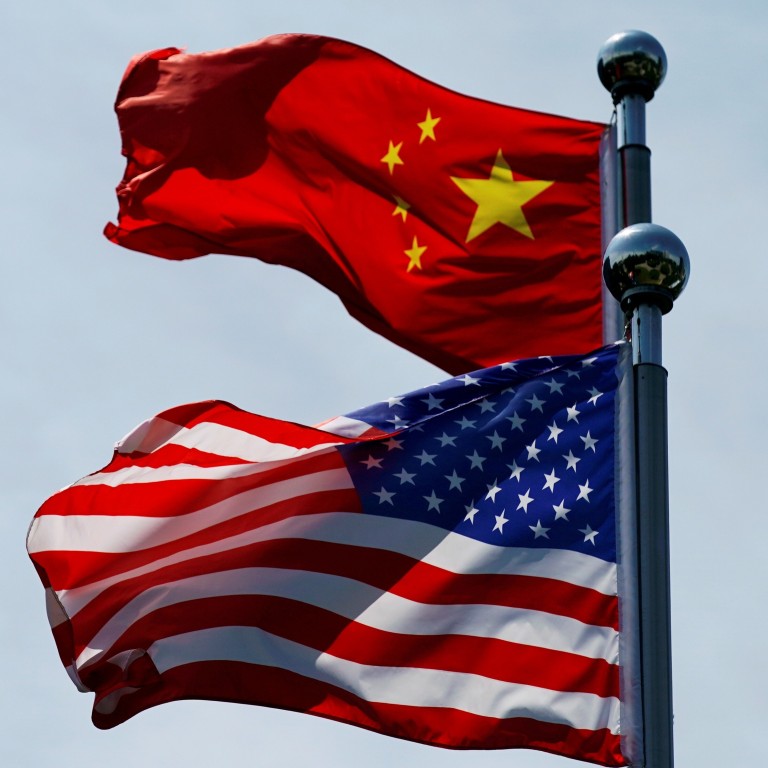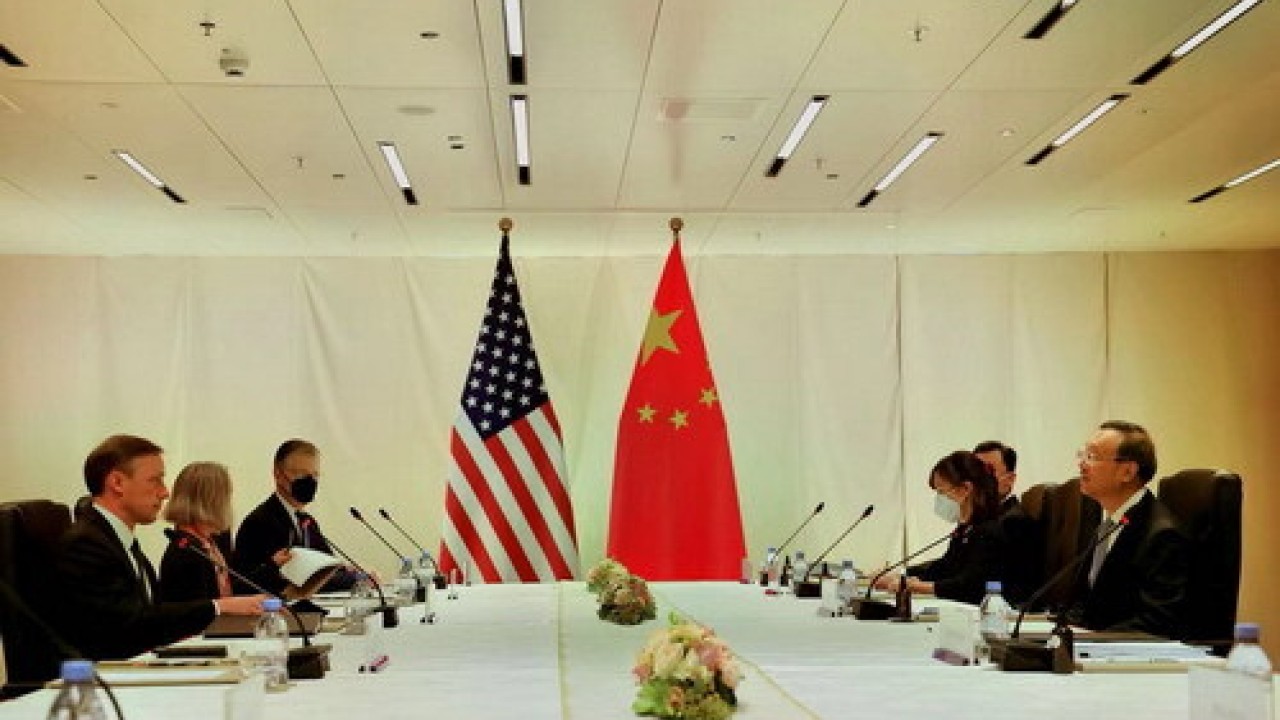
China, US ‘to up economic coordination’ as Evergrande crisis casts shadow
- The sides hold ‘constructive’ economic talks with global recovery ‘at crucial stage’, according to Chinese statement
- Beijing raised concerns about Washington’s tariffs, it says, after the second such talks of the Joe Biden presidency

01:17
US, Chinese diplomats’ meeting in Zurich paves way for continued talks
Statements from both sides stopped short of revealing specific details of the matters discussed, but observers said debt issues could have been among them.
“The US debt problem has an impact on the world market, and China Evergrande also has an impact on the US stock market,” said Chen Fengying, a senior researcher with the China Institute of Contemporary International Relations.
Evergrande, China’s biggest residential home builder by sales last year, is struggling under the weight of US$305 billion in total liabilities following years of expansion beyond its core property businesses. Concern about its ability to repay its massive debt load is causing turbulence in financial markets.
US Secretary of State Antony Blinken referenced Evergrande in an interview with Bloomberg this month, urging China to act “responsibly” in dealing with the crisis to avoid turbulence that might go beyond China’s economy and financial markets.
Chen said buying US Treasury bonds was still profitable, with such purchases “not helping the US, but helping China”.
A Chinese government adviser speaking on condition of anonymity said the purchase of the bonds was negotiable, and China might buy them if the US side “performs well” in the countries’ relations.
China in August slashed its holding of US Treasury bills to the lowest point since 2010, according to US data released last week.
A short statement in Chinese state media said the two sides held “pragmatic, candid and constructive exchanges on the macro economy and cooperation in bilateral and multilateral fields”.
Evergrande pays US$83.5 million coupon, dodging a default for now
“Both sides think the global economic recovery is at a crucial stage and it is important for China and the US to intensify communication and coordination of macro policies.”
Washington’s statement said the two countries “discussed macroeconomic and financial developments in the United States and China, recognising that developments in our two economies have important implications for the global economy”.
Yellen “also frankly raised issues of concern”, and looked forward to future dialogue with Liu, it said.
Taoran Notes, a social media account affiliated with the state-run Economic Daily and used by Beijing to manage expectations on China-US trade and economic talks, said bilateral communication had been pushed deeper and covered more concrete topics after economic dialogue was restored.
The intention to step up macro policy coordination, last mentioned in talks more than a year earlier, indicated that “pragmatic” communication on trade and economic fronts had helped to pull relations back to their normal track, yet also reflected the grave situation for the global economy, it said.
“It is an important issue that both countries have to face and answer to improve overall China-US relations,” it said.
Chinese state-owned energy giant Sinopec and its subsidiary recently signed three long-term liquefied natural gas (LNG) deals with US exporter Venture Global LNG.
Its trade surplus with the US widened to US$42 billion in September from US$37.7 billion in August. Imports from the US rose 17 per cent to US$15.4 billion in September, while exports rose by 31 per cent to US$57.4 billion, according to Chinese customs data.
The phase one deal is set to expire on December 31, before which Biden and Xi Jinping, his Chinese counterpart, are expected to hold a virtual meeting. It has been agreed in principle to hold it before the end of the year, but a date has yet to be announced.
What is the US-China trade war?
“The chances are small for completing the import target of the phase one trade deal,” wrote an analyst from China International Capital Corporation, the nation’s largest investment bank, in a note on August 20.
“The two sides must seek an opportunity to start the arrangement after the first phase of the agreement,” he said. “In fact, China and the United States need to negotiate again to make a proper arrangement after the agreement ends, and will also arrange for another round of negotiation.”
He said Chinese state subsidies and regulation of state-owned enterprises, which the US had blamed for unfair competition, were on the agenda for talks, while China was concerned the US could impose other measures even if it were to exempt certain Chinese products from tariffs, as Tai suggested this month.
“There is a possibility that the US will impose other punitive measures using different reasons, even with tariff exemptions,” he said. “So I believe both sides have to show sincerity to sit down and talk, and be considerate to each other.”
Chen said a phase two trade deal was unlikely, but the two nations would continue trade talks and both wanted to ensure stability of supply chains.
Wang Huiyao, president of the Beijing-based Centre for China and Globalisation, agreed that the video call was a move to prepare for the upcoming G20 summit and the virtual meeting between Xi and Biden.
He expected the two countries to continue talks after the phase one trade deal expired.
“They have many [issues about which] to exchange information,” he said, citing China’s attitude over Evergrande and the property sector, whether Beijing would buy or sell more Treasury bills and the US position on its monetary stimulus and inflation as examples.
He also expected the two countries’ commerce ministers would meet again soon.


